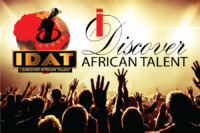
Formerly the British protectorate of Bechuanaland, Botswana adopted its new name upon independence in 1966. More than four decades of uninterrupted civilian leadership, progressive social policies, and significant capital investment have created one of the most stable economies in Africa. Mineral extraction, principally diamond mining, dominates economic activity, though tourism is a growing sector due to the country’s conservation practices and extensive nature preserves. Botswana has one of the world’s highest known rates of HIV/AIDS infection, but also one of Africa’s most progressive and comprehensive programs for dealing with the disease.
Capital: Gabarone
Government: Parliamentary Republic
Economy:
- Botswana has enjoyed one of the fastest growth rates per capita income in the world since independence.
- Since 1980’s, the country has been the world’s largest producer of gem-quality diamonds. As such, diamond mining will continue to be the mainstay of Botswana’s economy, with known current reserves sufficient for at least the next 20 years.
Population: 2 million (UN 2011)
Land Size: 581,730 sq km (224,607 sq miles)
Major Ethic Groups:
- Tswana (or Setswana): 79%
- Kalanga: 11%
- Basarwa: 3%
- Other, including Kgalagadi and white: 7%
Religions:
- Christian: 71.6%
- Badimo: 6%
- Other: 1.4%
- Unspecified: 0.4%
- None: 20.6%
Language(s):
- Setswana: 78.2%
- Kalanga: 7.9%
- Sekgalagadi: 2.8%
- English (official): 2.1%
- Other: 8.6%
- Unspecified: 0.4%
For more information on Botswana, please visit:
https://www.cia.gov/library/publications/the-world-factbook/geos/bc.html

Leave a Reply
You must be logged in to post a comment.